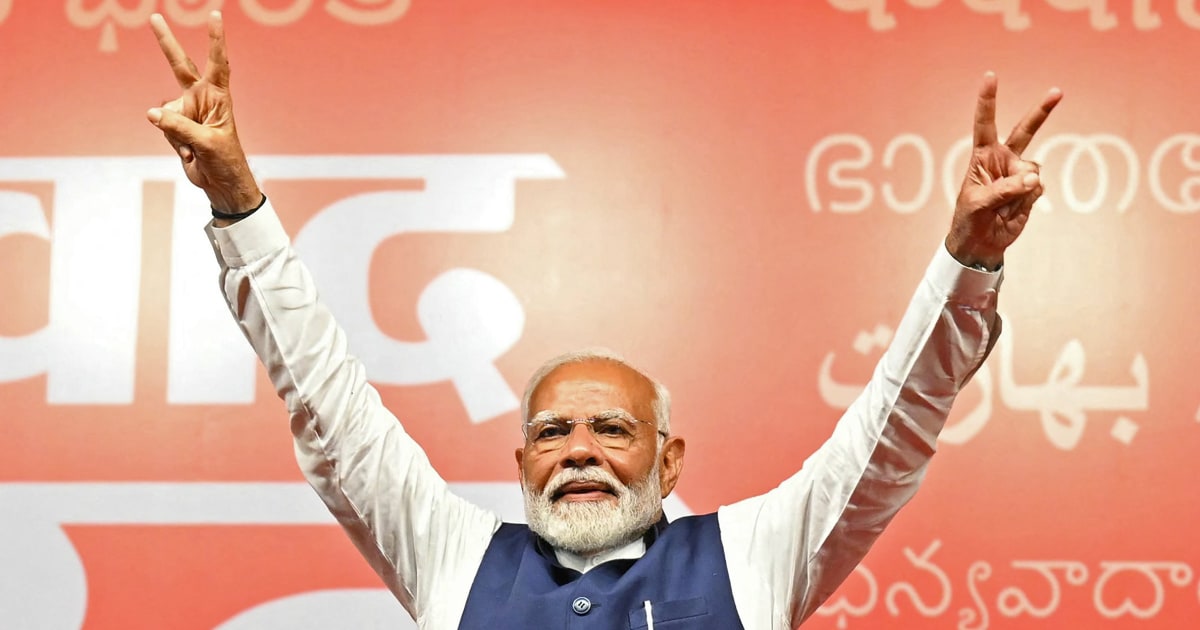
Far from winning the supermajority of 400 seats it had promised, the BJP won 240 out of 543 seats in the lower house of India’s Parliament, according to final results. That’s far short of the 272 needed for a one-party simple majority like the ones it easily secured in the last two elections in 2014 and 2019.
But together with allied parties, the BJP has enough seats to form a coalition government and secure Modi a third five-year term.
On Wednesday, the Indian government said Modi and his cabinet had resigned as is standard practice after an election, with India’s president requesting that they remain in charge until a new government is formed. He and his new cabinet are scheduled to be sworn in on Saturday, local media reported.
Still, the election feels like a defeat for Modi and his ethnonationalist agenda — and a stunning victory for the opposition, which has struggled to gain traction for years and on Tuesday hailed the comeback of multiparty democracy.
“It’s rejection of a politics of hate,” said Rajeev Bhargava, director of the Institute of Indian Thought at the Jawaharlal Nehru University in Delhi.
“Ordinary Hindus and Muslims have lived together peacefully, and they don’t like divisions being created,” he said.
India’s fractured opposition knew defeating Modi was not going to be easy, forming an alliance that looked shaky during the campaign.
Their troubles were further compounded by the arrest of party leaders and the freezing of party funds for which they blamed the BJP, which denied the allegations.
So it was especially sweet when election results began to show their efforts paying off.






